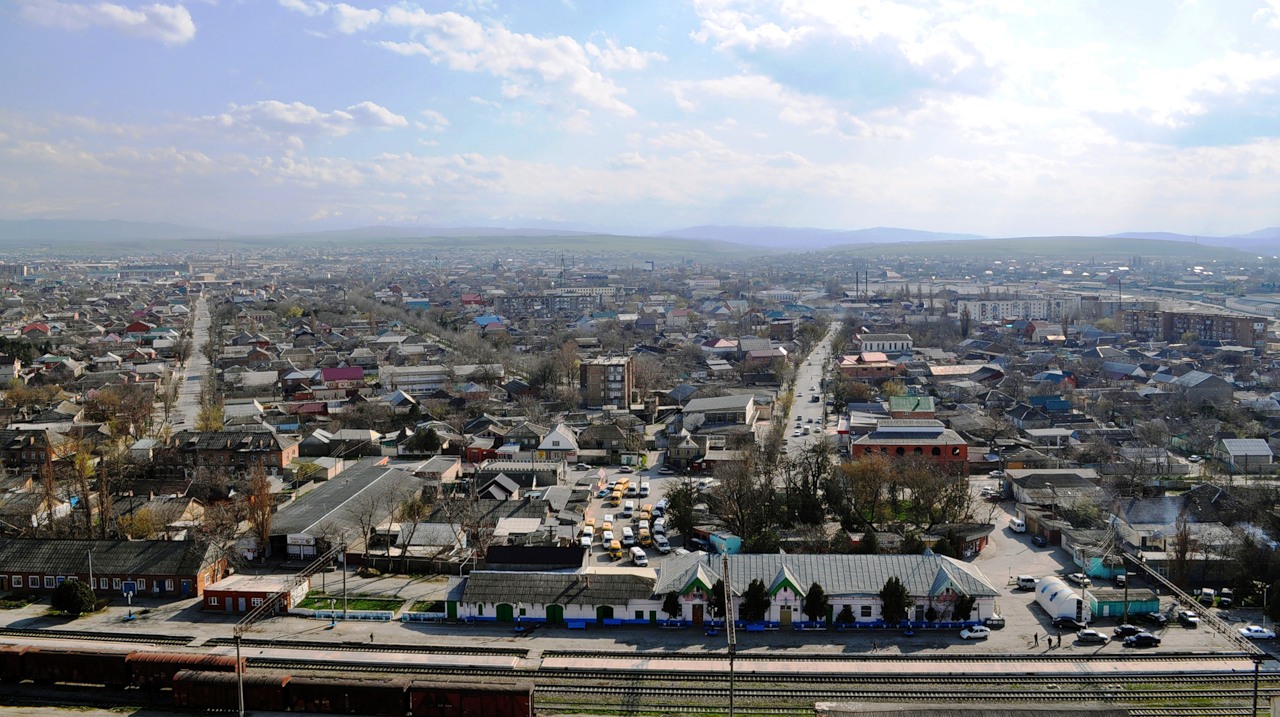

A man in the Russian Republic of Daghestan has been tortured into confessing to murder, his lawyer says. Sapiyat Magomedova told OC Media she believes police in the city of Khasavyurt intended to pin other unsolved crimes on her client, Kamil Khayrudinov, as part of a drive to improve crime statistics.
Khayrudinov’s wife, Zabiyat Bulatkhanova, told OC Media that she and her husband travelled to Moscow from the Daghestani city of Khasavyurt in August to work and pay off their debts.
According to Bulatkhanova, while on their way to work on 7 December, Khayrudinov was kidnapped by unknown people in front of her eyes. She said she went to the local police station but was unofficially informed that Khayrudinov had been taken to Daghestan by police officers from Khasavyurt.
Bulatkhanova said that the police chief of Khasavyurt did not allow either her or their lawyer to see Khayrudinov.
At a bail hearing on 10 December, Bulatkhanova found out that her husband was suspected of killing Kurban Kurbanov, a resident of Khasavyurt, in July 2017. She said it was visible that Khayrudinov had been severely beaten.
On 12 December, Magomedova said she managed to speak with Khayrudinov after reporting the head of the police department to the head of the inter-district investigation department of Khasavyurt.
During a meeting with her client, Magomedova confirmed that Khayrudinov had been beaten.
‘There are bruises on his face, in the kidney area, characteristic traces of the use of electric current on all fingers, open festering wounds on the legs, a broken nose, a contusion or fracture of the radial bone of the right arm’, said the lawyer.
She said Khayrudinov had told her policemen had tortured him into signing a confession, but then continued to beat him as he had not named the names and circumstances of the crime that were in the criminal case files.
‘He said that one night, he was taken out of the temporary detention centre to an office, where he was beaten and forced to sign papers and threatened with reprisals, including against his family.’
His lawyer said a doctor that examined Khayrudinov confirmed that his kidneys were damaged, his arm was broken, and that he had a concussion, but did not hospitalise him.
Magomedova then appealed to the Khasavyurt Prosecutor’s Office, Daghestan’s Investigative Committee, the Director of the Federal Security Service in Daghestan, the Minister of Internal Affairs of Daghestan, and the head of the Daghestani Interior Ministry’s internal security department to bring the Khasavyurt police officers to justice.
According to her, the authorities have not reacted to the claims of torture except to take a statement from Khayrudinov and a blood test to compare with blood samples from the murder.
A spokesperson for Daghestan’s Ministry of Internal Affairs denied that any torture took place in Khayrudinov’s case. The spokesperson told OC Media that Khayrudinov was guilty of the murder.
Not an isolated case
According to Magomedova, this was not an isolated case and there have been a large number of complaints of torture and trying to pin crimes on innocent people by police in Daghestan, but that the these were rarely investigated.
She said that in her experience, most of these occurred in the Khasavyurt and Sovietsky district police departments.
‘In July of this year, an almost unprecedented incident occurred — a court in Makhachkala convicted an operative of the police department in the Sovietsky District of Makhachkala, Habibul Aliyev, who was accused of torture and falsifying crime detection protocols. It was possible to start a criminal case because of the media, who promptly responded to the complaints of detainees and published their stories’.
Magomedova relayed an incident in October in which Khasavyurt police officers illegally held a former police officer from Kazbek District, Sultan Gotimirov, in their offices and attempted tpo elicit a confession from him for committing robbery.
Magomedova says that after Gotymirov managed to escape, the claims against him evaporated. She said there was still no response to his complaints from the prosecutor’s office or the investigative committee.
Gotymirov told OC Media that after he escaped from the police station, ‘I found out through my own channels that at that time I wasn’t even charged with a crime’.
A ‘tolerant attitude’ towards torture
Abubakar Yangulbayev, a lawyer with the Committee against Torture, told OC Media that since they began working in Daghestan in 2017, of 11 complaints, only two were prosecuted, neither of which involved torture in custody.
‘From my personal experience, I can say that torture in Daghestan happens so often that residents of the region have developed a tolerant attitude towards bullying by law enforcement officers’, said Yangulbayev.
Yangulbayev said that various types of torture were used in Daghestan, including suspending victims from the ceiling, beating, threats to torture relatives, abduction and detention in unknown place (illegal prisons, basements), torture with electric current, mutilation, and also murder.
Yangulbayev said law enforcement used torture to force people to confess to crimes or implicate others as well as for ‘career growth’.
‘Some claimants reported that those who tortured them extorted money from them’, he added.
According to Yangulbayev, the authorities have done nothing to eradicate torture in the republic, and while the police and other investigative authorities accept allegations of torture, they almost never initiate criminal cases in response.
He said there was a widespread perception in Daghestan that if a person was beaten by the police, he deserved it.
‘All this creates an overly favourable climate for the practice of torture and other unlawful measures of inquiry in the territory of Daghestan’.






